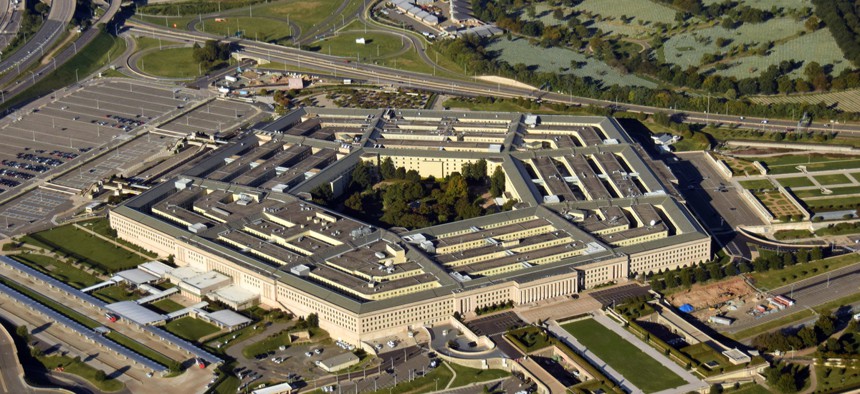Pentagon Says No JEDI Conflict, Narrows Field to AWS and Microsoft

Ivan Cholakov/Shutterstock.com
The Pentagon’s Joint Enterprise Defense Infrastructure cloud contract could be awarded by mid-July.
A Pentagon investigation determined a former employee who went to work for Amazon Web Services did not improperly impact the Joint Enterprise Defense Infrastructure acquisition process, clearing a major hurdle that had bogged down what could be a $10 billion contract.
The JEDI contract, which will charge a commercial company with building a cloud to analyze and process swaths of classified and sensitive military data, had been stalled in court over potential conflicts of interest since February.
However, the Pentagon did identify other potential ethical violations committed by current AWS employee Deap Ubhi, who worked in the Pentagon’s Defense Digital Service for almost two years and spent seven weeks working on JEDI. Those potential violations have been referred to the Defense Department inspector general, according to Defense spokeswoman Elissa Smith.
“The department's investigation has determined that there is no adverse impact on the integrity of the acquisition process,” Smith told Nextgov. “However, the investigation also uncovered potential ethical violations, which have been further referred to DOD IG.”
Smith said the Defense Department found that only bids from Microsoft and AWS met the contract’s competitive range determination. Bids from competitors, including IBM and Oracle, which filed an ongoing lawsuit, were ruled out because they could not meet the Pentagon’s minimum requirements. Smith said the Pentagon could make an award by mid-July.
“The two companies within the competitive range will participate further in the procurement process,” Smith said. “DOD remains committed to adopting the best enterprise cloud solution that fits its unique and critical needs.”
Through its attorneys, the Defense Department will be asking the court to lift the stay it requested in February to conduct the conflict of interest investigation, which stemmed from allegations made by Oracle in its lawsuit. According to Smith, the stay only precluded the conclusion of the bid protest, not moving forward in request for proposal process.
Oracle’s lawsuit remains pending, but its chances of success may now be on life support given the Pentagon’s conclusion. Oracle filed its lawsuit in December and the case was stayed to allow the Pentagon to investigate potential conflicts of interest after new information came to light about Ubhi.
Oracle’s other allegations—that the contract restricted competition and shouldn’t be awarded to a single company—with the Court of Federal Claims mirror those it made in a bid protest that was ultimately denied by the Government Accountability Office.
The conflict-of-interest investigation’s conclusion could prove an important moment for JEDI, one of the most notable and controversial military IT contracts to date. The impetus for putting a commercial company in charge of the Pentagon’s war cloud came after a West Coast visit in 2017 to tech companies by then-Defense Secretary Jim Mattis.
Bids for the contract were accepted in October.
NEXT STORY: Cloud Success Starts at the Top






